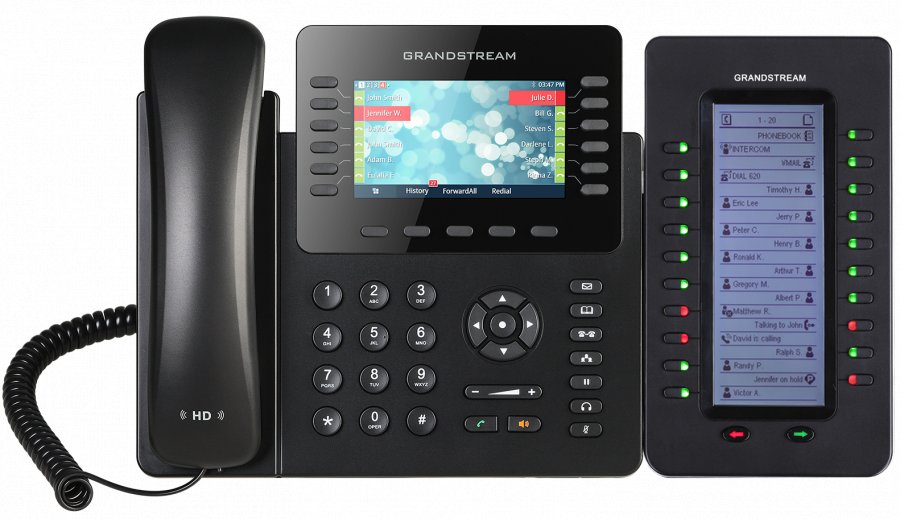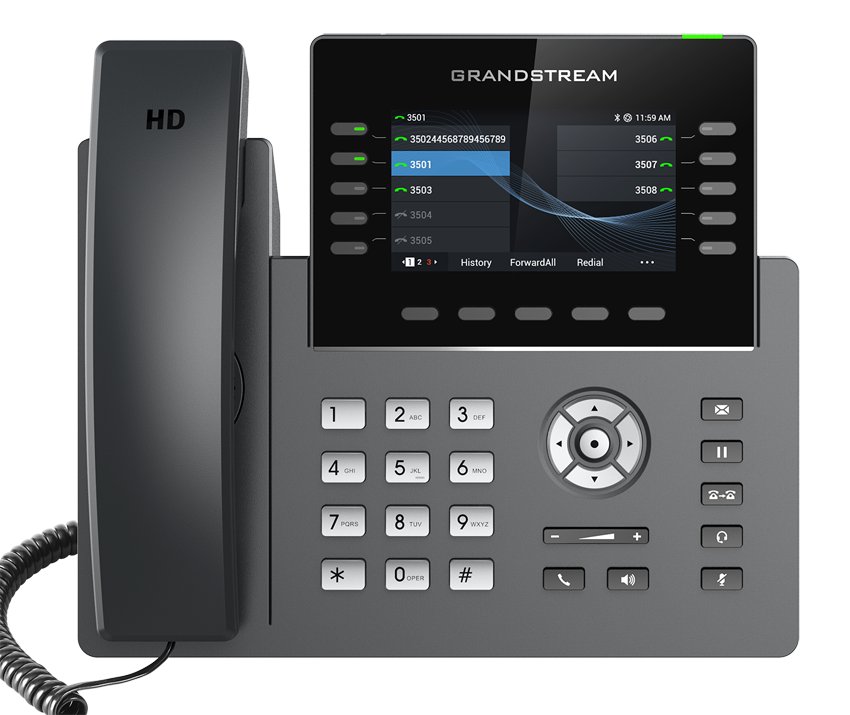
In an era where connectivity is paramount, the evolution of business phone services is transforming how organizations communicate, bridging the gap between traditional systems and innovative, internet-based solutions. But does reliable communication truly underpin success, or are these technological advancements reshaping competition itself? Modern platforms, powered by VoIP, offer scalability, cost-efficiency, and a suite of features that elevate professionalism and operational efficiency. From auto-attendants to AI-driven call management, these tools streamline workflows and foster trust with clients, especially amid growing security and compliance demands. Yet, as businesses increasingly rely on cloud and mobile integrations, the challenge becomes ensuring seamless, secure, and adaptable systems that support growth and resilience. What does the future hold? With emerging technologies like 5G, artificial intelligence, and integrated ecosystems, companies that harness these innovations will not only stay ahead but redefine success in the digital age, turning communication into a strategic asset. Are you ready to future-proof your organization?
Elevate Your Business Communications with FiberConX’s Advanced VoIP Solutions in Canada
Discover the power of reliable sip phone services offered by FiberConX Communications, a leading provider of VoIP and IP business phone services in Canada. Our solutions include features like voicemail, IVR, ring groups, and voicemail-to-mail, ensuring seamless communication for your organization. Whether you’re a small business or a large enterprise, FiberConX’s advanced technology guarantees clear calls and efficient routing to enhance your customer experience. For tailored solutions and support, contact our team at Sales@FiberConX.com or call 1.416.945.9210 today and transform your business communication infrastructure.

Transforming Business Communication in a Digital Age Driven by Reliability and Flexibility
In today’s fast-moving business environment, clear and reliable communication isn’t just a convenience—it’s a necessity. Companies need tools that connect teams, clients, and partners seamlessly, no matter where they are. This demand has driven a major shift from traditional landline systems to internet-based solutions that offer much more than basic voice calls. These modern platforms are transforming how organizations operate daily, making communication more flexible, efficient, and professional.
The evolution from physical landlines to digital systems marked a turning point in business communication. Landlines provided dependable service but came with notable limitations: high costs, inflexibility, and difficulty scaling as companies expanded. The advent of Voice over Internet Protocol, or VoIP, changed the game by transmitting voice as data over the internet. This shift drastically lowered costs and unlocked new features like video conferencing, instant messaging, and mobile integration—tools that are now essential for modern businesses.
Reliable communication isn’t just about convenience; it’s a cornerstone of professionalism and trust. Customers expect quick, consistent responses, and a polished phone system helps meet those expectations. Features such as auto-attendants, call routing, and personalized greetings create a professional image, making even small businesses appear larger and more established. Internally, these systems keep teams connected, streamline workflows, and reduce errors—contributing to smoother operations every day.
Scalability has become a critical factor as organizations grow. Cloud-based phone services make it simple to add new lines or users without hardware upgrades, enabling businesses to expand without disruption. They also provide resilience—calls can be rerouted instantly during emergencies or hardware failures—ensuring continuous service and minimal downtime. This flexibility supports long-term growth and helps companies maintain a competitive edge in an increasingly digital marketplace.
Security features have grown in importance alongside technological advances. Modern solutions incorporate encryption, call recording, and compliance tools that protect sensitive information and meet strict industry standards. These capabilities are vital for sectors like healthcare, finance, and legal services, where confidentiality isn’t optional but a requirement. By adopting secure, scalable communication systems, companies can build trust with clients and partners, safeguarding their reputation and operational integrity.

Strategic Deployment of Modern Phone Systems for Enhanced Business Operations
Modern phone services have become deeply embedded in everyday business operations, transforming how companies connect with customers and manage internal workflows. Features like auto-attendants now serve as the front door of a business, greeting callers professionally and routing them efficiently without long wait times. This not only enhances the customer experience but also projects a polished image, helping even small firms appear more established and capable.
Call routing takes this efficiency further by customizing how incoming calls are handled based on factors like caller location, time of day, or specific needs. For instance, a retail chain can automatically direct calls to local stores or departments, reducing hold times and ensuring customers reach the right person quickly. This tailored approach demonstrates attentiveness, builds trust, and shows that the business values prompt, personalized service.
Different industries leverage these features in ways that suit their unique needs. Law firms and consulting agencies often integrate VoIP with customer relationship management (CRM) tools to personalize interactions and streamline scheduling. Healthcare providers rely on secure call recording and encryption to protect patient privacy while maintaining high communication standards. Small startups increasingly utilize mobile-integrated softphones, enabling remote teams to stay connected and professional without traditional office hardware. These examples highlight how flexible deployment of advanced features boosts both operational efficiency and client satisfaction.
Choosing the right platform goes beyond just selecting features; it’s about aligning technology with strategic goals. Traditional landline systems, while reliable, lack the agility and modern capabilities offered by VoIP. Cloud-based solutions stand out because they allow rapid scaling—adding new lines or users with just a few clicks. During emergencies or hardware failures, calls can be rerouted instantly, ensuring uninterrupted service and maintaining trust. This resilience becomes crucial in today’s competitive environment, where continuous communication can impact customer loyalty and operational continuity.
Emerging innovations are making these systems even smarter. Artificial intelligence is increasingly used to manage calls more effectively—virtual assistants handle common inquiries, freeing staff for complex tasks. Machine learning analyzes call data to identify patterns, helping organizations optimize workflows and anticipate customer needs. Meanwhile, the rollout of 5G networks promises faster, more reliable mobile connections, supporting remote collaboration and high-quality video conferencing seamlessly. These advancements turn communication from a utility into a strategic asset that adapts swiftly to changing demands.
However, deploying such technology requires careful planning. Integrating new systems with existing workflows can be complex, and security features are more vital than ever. Encryption, call recording, and secure access controls protect sensitive data and ensure compliance with industry standards. Clear training and communication during implementation help staff adapt quickly, reducing resistance and operational hiccups. Regular reviews and updates keep the system aligned with evolving needs, making it a dependable backbone for daily business functions.
Flexibility is essential as companies grow or shift focus. Cloud-based platforms excel here, enabling straightforward scaling without hardware upgrades or reconfigurations. Adding new users or features becomes a matter of clicks, supporting long-term growth and market responsiveness. This agility helps organizations respond rapidly to new opportunities or challenges, maintaining a competitive edge. An adaptable communication infrastructure isn’t just a convenience; it’s a strategic advantage in a fast-changing landscape.
Overall, adopting advanced communication tools isn’t just about technology; it’s about empowering your business to operate more efficiently, professionally, and securely. Features like automated routing, encryption, and mobile integration create a seamless experience for customers and employees alike. By leveraging these solutions, companies can connect better, respond faster, and stay ahead in an increasingly digital marketplace. Embracing this transformation positions your business not just for today’s success but for future growth and resilience.
Expert Insights on Building Secure, Scalable, and Effective Communication Infrastructure
Industry professionals agree that deploying a modern phone system isn’t just about choosing the latest features; it’s a strategic process that starts with a clear understanding of your business’s unique needs. Conducting a thorough assessment of your goals, growth plans, and operational challenges helps identify solutions that are scalable, secure, and aligned with your long-term vision. Partnering with experienced providers who understand your industry can ease the transition, offering ongoing support that makes implementation smoother and more manageable.
Planning is key. Involving staff early in the process and providing comprehensive training minimizes resistance and builds confidence. Clearly communicating the benefits and purpose of the new system helps staff see its value, encouraging quicker adoption. Regular check-ins during rollout allow for troubleshooting and adjustments, reducing operational disruptions and ensuring a seamless transition.
Once the system is up and running, ongoing management becomes crucial. Setting up routine reviews to evaluate performance ensures the system continues to meet evolving needs. Keeping software updated and security measures current isn’t optional—these steps protect sensitive data and help maintain compliance. Industry leaders emphasize establishing protocols for call recording, encryption, and access controls, which are vital for safeguarding information and building trust.
Flexibility should be at the heart of your strategy. Cloud-based systems excel here, allowing you to scale easily by adding lines or features without hardware upgrades or complex reconfigurations. As your business shifts or grows, this agility ensures your communication infrastructure adapts quickly, supporting long-term success. Regularly revisiting your communication approach keeps your system aligned with new priorities and operational realities.
Choosing reliable providers that offer comprehensive support and clear service level agreements makes a difference. A dependable partner reduces downtime and ensures swift resolution of issues, keeping your business connected without interruption. User-friendly interfaces combined with ongoing training empower staff to utilize new features effectively, transforming the system from a utility into a true business asset.
Security remains a top concern. Integrating encryption, call recording, and secure access controls protects sensitive information and helps meet industry standards. These measures are especially critical in sectors like healthcare, finance, and legal services, where confidentiality isn’t optional. Building these protections into your communication strategy not only safeguards data but also fosters trust with clients and partners.
Embracing technological advancements is an ongoing journey. Regular reviews, updates, and staff training ensure your communication infrastructure remains resilient and aligned with your evolving business strategy. Viewing your phone system as a dynamic tool that supports growth, enhances customer experience, and maintains your competitive edge keeps your organization agile in a rapidly changing digital landscape.
By integrating advanced features like SIP phones, your business can enjoy improved call quality and greater flexibility in communication. For those interested in upgrading their systems, exploring options such as a sip phone can provide significant advantages for scalability and security.

Future-Proofing Business Communication: Embracing AI, 5G, and Innovative Trends for Competitive Advantage
As we look to the future, business communication is on the cusp of even greater transformation. Innovations like artificial intelligence and faster, more reliable mobile networks are set to reshape how companies connect and collaborate. AI-driven tools, such as virtual assistants and intelligent call routing, will handle routine inquiries and predict customer needs, making interactions more personalized and efficient. This not only enhances customer experience but also frees up staff to focus on complex, value-added tasks.
The rollout of 5G networks promises to elevate connectivity to new heights. With faster speeds and lower latency, remote collaboration, high-quality video conferencing, and instant data sharing will become seamless, regardless of location. This will empower teams to work more flexibly and respond quickly to market changes, blurring the lines between office and remote work even further. Unified platforms that integrate voice, video, and messaging into a single interface will simplify workflows and reduce the fragmentation of communication channels.
Security will continue to be a top priority as these technological advances unfold. End-to-end encryption, adaptive access controls, and secure call recording will be essential to protect sensitive information and meet industry standards. Companies investing in robust security measures will build greater trust with clients and partners, especially in sectors like healthcare, finance, and legal services, where confidentiality is paramount. Ensuring data privacy isn’t just a compliance issue—it’s a foundation of reputation and operational integrity.
Adopting these emerging tools isn’t just about keeping pace; it’s about staying ahead. Early integration of AI, cloud solutions, and 5G connectivity will position businesses as resilient, agile, and competitive. They’ll be better equipped to adapt swiftly to market shifts, scale operations without disruption, and deliver exceptional customer experiences. This forward-thinking approach transforms communication from a basic utility into a strategic advantage.
User experience will also see significant improvements. Intuitive interfaces, voice-activated commands, and seamless integrations will make advanced communication systems accessible to organizations of all sizes. Simplified adoption will encourage widespread use and ensure that the full potential of these innovations is realized. When technology is easy to use, it becomes a true enabler of productivity rather than a barrier.
In a landscape characterized by rapid digital change, investing in reliable, flexible, and secure communication solutions is no longer optional—it’s essential. Companies that embrace these advancements now will not only enhance their current operations but also future-proof their business against uncertainties. They will be better positioned to innovate, grow, and maintain their competitive edge in an increasingly digital world.
The evolution of business phone services exemplifies a broader shift toward smarter, more integrated communication ecosystems. As these technologies mature, they will continue to break down barriers, foster collaboration, and support strategic growth. Businesses that recognize and adapt to these trends will thrive, turning communication infrastructure into a core driver of success rather than just a support function.
Looking ahead, the ability to harness these innovations will define the most resilient organizations. Those who invest in cutting-edge, secure, and user-friendly communication tools today will set themselves apart tomorrow. They will connect faster, respond smarter, and operate more efficiently, all while maintaining the trust and professionalism that today’s customers demand. The future belongs to those who see communication not just as a utility, but as a key strategic asset shaping their path forward.



